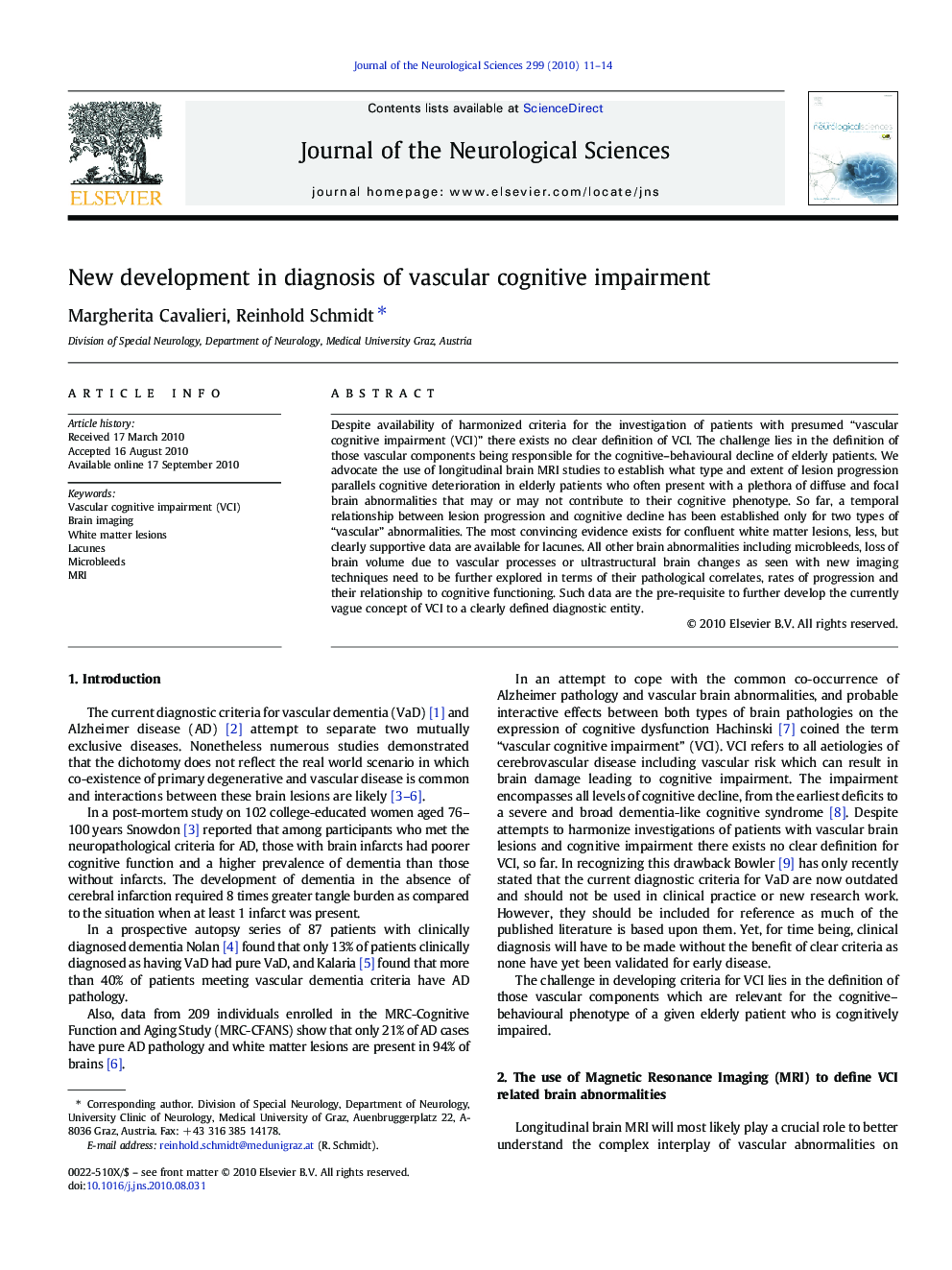| Article ID | Journal | Published Year | Pages | File Type |
|---|---|---|---|---|
| 1914431 | Journal of the Neurological Sciences | 2010 | 4 Pages |
Despite availability of harmonized criteria for the investigation of patients with presumed “vascular cognitive impairment (VCI)” there exists no clear definition of VCI. The challenge lies in the definition of those vascular components being responsible for the cognitive–behavioural decline of elderly patients. We advocate the use of longitudinal brain MRI studies to establish what type and extent of lesion progression parallels cognitive deterioration in elderly patients who often present with a plethora of diffuse and focal brain abnormalities that may or may not contribute to their cognitive phenotype. So far, a temporal relationship between lesion progression and cognitive decline has been established only for two types of “vascular” abnormalities. The most convincing evidence exists for confluent white matter lesions, less, but clearly supportive data are available for lacunes. All other brain abnormalities including microbleeds, loss of brain volume due to vascular processes or ultrastructural brain changes as seen with new imaging techniques need to be further explored in terms of their pathological correlates, rates of progression and their relationship to cognitive functioning. Such data are the pre-requisite to further develop the currently vague concept of VCI to a clearly defined diagnostic entity.
